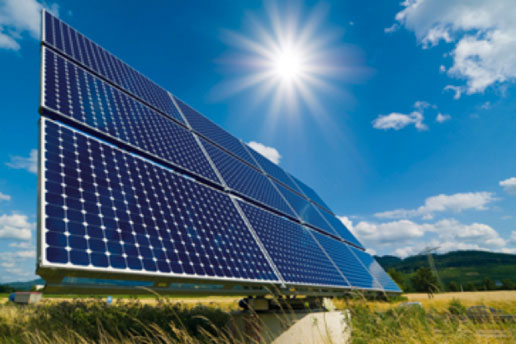Written By: Faith Jemosop
Despite increasing criticism from international environmental activists such as the Extinction Rebellion, Africa’s oil and gas leaders, backed by the African Energy Chamber (AEC), remain committed to advancing exploration and development projects. The sector views hydrocarbons as essential to driving energy access, job creation, and industrialization, and has rebuked what it calls “foreign-funded anti-African energy agendas.”
Extinction Rebellion Attacks South Africa’s Offshore Oil Ambitions
The latest round of criticism was sparked by Extinction Rebellion, a global climate activism group, through a statement by its spokesperson Moraig Peden. The group condemned South Africa’s moves to explore and expand offshore oil and gas production. They argued the projects are “environmentally reckless” and endanger marine biodiversity, especially in ecologically sensitive zones such as the Wild Coast.
Peden’s article singled out TotalEnergies’ and Shell’s ongoing seismic surveys, portraying them as neo-colonial ventures that threaten local communities while enriching multinational corporations. The Extinction Rebellion further called for a complete halt to oil and gas expansion, urging the South African government to instead pursue rapid investment in renewables.
AEC, Oil Industry Push Back: “This Is Energy Colonialism in Disguise”
The African Energy Chamber (AEC) swiftly responded, criticizing the Extinction Rebellion for what it termed “elitist, foreign-funded attempts to deny Africans the right to development.” According to AEC Executive Chairman NJ Ayuk, such narratives are not only patronizing but also dangerous, as they ignore Africa’s unique energy challenges.
“They want us to skip straight to renewables when 600 million Africans still lack access to electricity,” said Ayuk in a recent press statement. “This is not environmentalism, it is energy apartheid.”
The AEC insists that oil and gas development is not incompatible with climate goals, especially when approached through African-led frameworks that prioritize natural gas as a transition fuel and reinvest revenue into green technologies.
Development vs Climate Activism
Africa’s urgent need for development vs. global climate imperatives. Many African countries argue that their per capita emissions are among the lowest globally, yet they are being pressured to abandon fossil fuel development even before industrializing.
Key stats:
- Africa contributes less than 4% to global carbon emissions.
- Over 600 million Africans lack electricity access, and nearly 1 billion rely on polluting biomass for cooking.
- Oil and gas revenues constitute a significant share of GDP in countries like Nigeria (40%), Angola (30%), and Algeria (20%).
Given these realities, many African governments argue that hydrocarbons, particularly natural gas, must play a central role in achieving SDG7: universal energy access by 2030.
South Africa’s Case: Balancing Energy Security and Ecology
South Africa has emerged as a key battleground in this energy debate. Facing an ongoing electricity crisis marked by load shedding, the government is pushing ahead with diversified energy investments, including offshore gas exploration.
The Department of Mineral Resources and Energy (DMRE) recently approved environmental permits for seismic surveys, arguing they are essential for assessing domestic gas potential, which could reduce reliance on coal and imported fuels.
Proponents argue that natural gas could stabilize the national grid, enable cleaner cooking, and drive industrial growth, particularly in coastal areas like the Eastern Cape and KwaZulu-Natal.
However, environmental groups like Extinction Rebellion warn of long-term risks, especially to marine ecosystems, fisheries, and tourism. They’ve also accused the government of ignoring indigenous consultation and fast-tracking approvals without adequate environmental oversight.
Foreign Influence and the ‘Green Colonialism’ Accusation
The AEC and its allies have gone further to question the motives of groups like Extinction Rebellion, Greenpeace, and 350.org. They point out that many such organizations are heavily funded by Western donors, and their influence often sidelines local African voices and development priorities.
“We cannot let well-fed Europeans tell Africans how to power their homes,” said Ayuk in a fiery 2024 panel discussion.
This framing, what the AEC calls “green colonialism”, has gained traction among some African policymakers, who view Western climate advocacy as hypocritical, especially considering that the West built its wealth on fossil fuels and still consumes the bulk of global energy.
Investment, Jobs, and Energy Access
The stakes are high. According to the International Energy Agency (IEA), Africa needs over $200 billion in energy investment annually to meet its development goals by 2040. Much of this, experts argue, will come from oil and gas revenues.
Offshore projects in Mozambique, Senegal, Namibia, and South Africa are expected to create hundreds of thousands of jobs, generate billions in tax revenue, and potentially transform local economies through industrial hubs, LNG terminals, and power plants.
Natural gas, in particular, is seen as a bridge fuel that can complement renewables by offering baseload power while enabling cleaner cooking solutions to reduce indoor air pollution, one of Africa’s top causes of premature death.
Also read: Global South Demands Urgent Energy Transition as SDG Progress Stalls
Both African leaders and international institutions like the African Development Bank (AfDB) are advocating a balanced energy mix, combining renewables with hydrocarbons. Solar and wind projects are growing, but their intermittent nature and upfront cost remain major hurdles, especially in fragile or rural regions.
In contrast, gas-to-power projects can be deployed faster, stabilize grids, and support industry. For instance:
- Nigeria’s Decade of Gas aims to transition the economy from oil-dependence to gas-led industrialization.
- Senegal’s Sangomar field is expected to be a major gas exporter and domestic power source.
- South Africa’s Brulpadda and Luiperd fields could displace diesel imports and reduce coal dependency.



